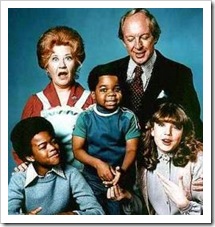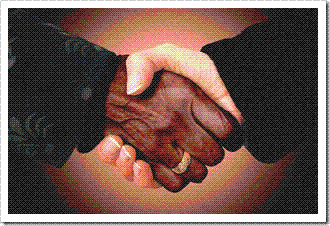
Do unto others as you would have them do unto you
Matthew 7:12
The above quote is widely used by people as a “rule of thumb” for treating others. I must have heard it spoken to kids by their parents hundreds of times in different settings. But I am here to tell you that this way of thinking can get you into all kinds of strife and that if you review your relationships, you will find out how.
Think for a moment about the many ways in which people vary:
- Gender – Would you do unto a woman what you would do unto a man?
- Age – Do you treat your elders as you treat your kids?
- Job title – Can you use “that tone of voice” with your boss?
- Occupation – Are nurses the same as engineers?
- Religion – Say you are American, and say you are upset with Muslim at the moment and have your say in front of your Christian friends. Would you repeat the same things in the middle of a large mosque, in front of a couple hundred Muslims?
- Culture – Shaking hands is a form of greeting in western society, but would you also shake hands in Thailand? Burping is considered rude in many places and honors your host in others.
 Communication style – Do you learn best through watching, listening, analyzing or trying? Do they express themselves best through writing and drawing, talking and singing, debating the fine points or waving their arms and making faces?
Communication style – Do you learn best through watching, listening, analyzing or trying? Do they express themselves best through writing and drawing, talking and singing, debating the fine points or waving their arms and making faces?- Love language – Do you feel loved when someone touches you, gives you a present, meets you for coffee, says nice things about you or helps you with the laundry?
- Experience – Would you ever say to a little toddler or a dentist, “What do you mean you can’t write HTML code?”
- Taste – Jalapeño? Lemon? More sugar?
- Style – Jeans, mini-skirt or long dress?
- Political views – Better not go there…
- Favorite football club – Another danger zone.
I think you get it by now – people are different in many respects.
It’s a small world
The world is fast becoming a small village and this should make us realize just as quickly that many of the obvious things we grew up with were only obvious to people like us. If we try them on different people, the results can be quite unpredictable.
But once we open to the idea of “to each his own”, we start noticing that even within an apparently-homogeneous society, people are individuals who may make different choices and may have completely different preferences to ours.

Being the quick thinker that you are, right about now you may be thinking, “Hang on a minute! Everybody needs to be loved, to be respected, to feel safe and all those other things common to all humans. I could just love people, respect them and make them feel safe, can’t I?”
Well, no, actually, because although everybody wants the same feelings in the end, what differs is how they get them. Having a different perception of the world means people interpret the same actions and words in a different way and end up with different feelings to what you or I would end up with.
Well, isn’t this bad luck! What do we do now?
Of course, trying to do the right thing every time for every person is just as unrealistic as assuming they are like us. It would take too long to find out what everyone in our life preferred, and most of the time, the answer would not matter that much anyway.
How to do the right thing
I believe that the key to the answer is in looking at a relationship as something that changes and grows over time. So we start out doing what may work and then fine tune as we go along.
Here is how:
- When we first meet someone new, the most important thing is to keep an open mind and spend some time getting to know him or her. Open (“WH”) questions solicit information from the other person, while we maintain control over the conversation by asking about what we find interesting or important.
- Watch the other person’s body language for reactions to what you say and expressions of how he or she feels.
- Listen to the other person’s tone of voice and note speed, pitch and emphasis on words to detect emotional responses.
 Use the other person’s responses to adjust your style. Gradually, the other person will feel more and more comfortable with you and the relationship will grow stronger.
Use the other person’s responses to adjust your style. Gradually, the other person will feel more and more comfortable with you and the relationship will grow stronger.- As your relationship develops, there will be many times when you will say or do something the other person does not like. This is OK. There is no need to kick yourself when it happens, just to learn and remember for next time.
- Many things you can do or say will be on a scale. For instance, you can be “upset”, “angry” or “furious”. As a general rule, it is best to “start small” and work your way up. Using words and actions that are too strong may offend, which can be unpleasant. Using words and actions that are too mild will be treated with anything between encouragement and ridicule, but in either case, you will know what to do next.
- When you have said or done something that hurts the other person, backtrack quickly – apologize and ask for the other’s guidance before you proceed. After all, your intention was good and this was just a misunderstanding.
- In the other direction, it is important to pause when you hear something inappropriate from the other person and consider that it may have come from their perspective on the world and was not aimed at hurting you. It is just inappropriate for you. This realization should make most things a lot easier to deal with and remove much of the potential stress from the relationship.
- Whenever some misunderstanding like this happens, let the other person know what you prefer. Even the most tolerant person on Earth has limits and it is good for the people around you to know yours.
Whatever happens, the main thing is to remember we all operate from our own point of view and our own beliefs and values and we all try to do the best for us. When we bump into somebody else, it is time to re-evaluate how we see the world and the other person, so just use it as a sign.
So here’s a better motto:
Do unto others what works
Gal Baras
 Communication style – Do you learn best through watching, listening, analyzing or trying? Do they express themselves best through writing and drawing, talking and singing, debating the fine points or waving their arms and making faces?
Communication style – Do you learn best through watching, listening, analyzing or trying? Do they express themselves best through writing and drawing, talking and singing, debating the fine points or waving their arms and making faces? Use the other person’s responses to adjust your style. Gradually, the other person will feel more and more comfortable with you and the relationship will grow stronger.
Use the other person’s responses to adjust your style. Gradually, the other person will feel more and more comfortable with you and the relationship will grow stronger.










